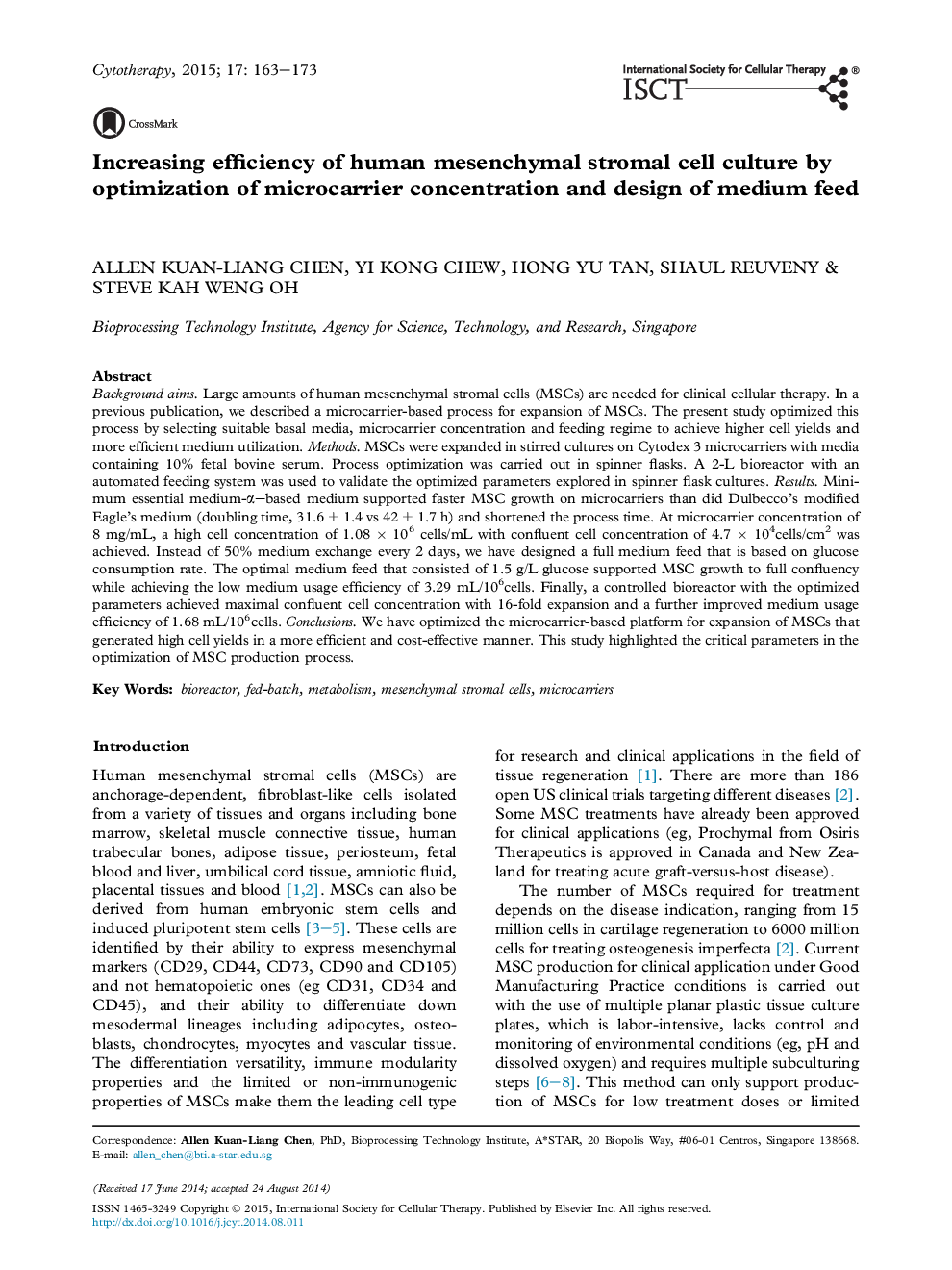| Article ID | Journal | Published Year | Pages | File Type |
|---|---|---|---|---|
| 2171823 | Cytotherapy | 2015 | 11 Pages |
Background aimsLarge amounts of human mesenchymal stromal cells (MSCs) are needed for clinical cellular therapy. In a previous publication, we described a microcarrier-based process for expansion of MSCs. The present study optimized this process by selecting suitable basal media, microcarrier concentration and feeding regime to achieve higher cell yields and more efficient medium utilization.MethodsMSCs were expanded in stirred cultures on Cytodex 3 microcarriers with media containing 10% fetal bovine serum. Process optimization was carried out in spinner flasks. A 2-L bioreactor with an automated feeding system was used to validate the optimized parameters explored in spinner flask cultures.ResultsMinimum essential medium-α–based medium supported faster MSC growth on microcarriers than did Dulbecco's modified Eagle's medium (doubling time, 31.6 ± 1.4 vs 42 ± 1.7 h) and shortened the process time. At microcarrier concentration of 8 mg/mL, a high cell concentration of 1.08 × 106 cells/mL with confluent cell concentration of 4.7 × 104cells/cm2 was achieved. Instead of 50% medium exchange every 2 days, we have designed a full medium feed that is based on glucose consumption rate. The optimal medium feed that consisted of 1.5 g/L glucose supported MSC growth to full confluency while achieving the low medium usage efficiency of 3.29 mL/106cells. Finally, a controlled bioreactor with the optimized parameters achieved maximal confluent cell concentration with 16-fold expansion and a further improved medium usage efficiency of 1.68 mL/106cells.ConclusionsWe have optimized the microcarrier-based platform for expansion of MSCs that generated high cell yields in a more efficient and cost-effective manner. This study highlighted the critical parameters in the optimization of MSC production process.
